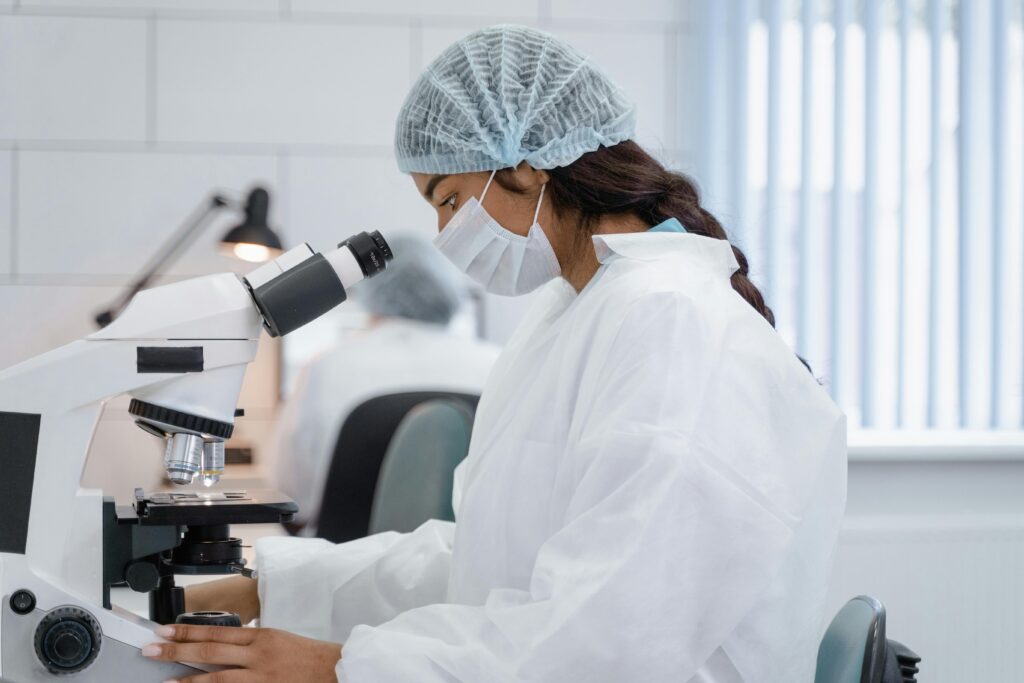Forensic science stands at the confluence of technology, law, and meticulous investigation. It is a field that relies on precision, innovation, and the relentless pursuit of truth. As the world evolves, so does the realm of forensic science, particularly through the groundbreaking contributions of female scientists who are reshaping its future. This blog explores how women are influencing the next frontier in forensics, highlighting their insights and the transformative impact of their work.
Breaking New Ground in Forensic Science
The landscape of forensic science is rapidly advancing, driven by innovations in technology and methodology. Female scientists are at the forefront of these changes, bringing new perspectives and approaches to the field. Their work spans a variety of specializations, from DNA analysis to digital forensics, each contributing to a more precise and reliable criminal justice system.
Dr. Elizabeth Ainsworth, a prominent figure in forensic genetics, exemplifies this influence. Her research has significantly enhanced the accuracy of DNA analysis, particularly in cases involving degraded or minimal samples. Dr. Ainsworth’s development of advanced techniques for DNA extraction and profiling has revolutionized cold case investigations, providing crucial breakthroughs in solving long-standing mysteries. Her work not only exemplifies scientific excellence but also underscores the critical role of women in driving innovation within forensics.
Advancing Digital Forensics
The digital age has introduced new challenges and opportunities for forensic science. Cybercrime and digital evidence have become integral to modern investigations, requiring sophisticated tools and techniques. Female scientists like Dr. Angela L. Stokes are leading the charge in digital forensics, developing cutting-edge methodologies to analyze and interpret digital evidence.
Dr. Stokes’s research focuses on improving data recovery techniques and enhancing the reliability of digital forensic tools. Her contributions are instrumental in addressing the increasing complexity of cybercrime, where traditional methods may fall short. By pioneering new approaches to data extraction and analysis, Dr. Stokes is helping law enforcement agencies navigate the evolving landscape of digital evidence.
Innovations in Forensic Toxicology
Forensic toxicology plays a crucial role in determining the cause of death and understanding substance-related crimes. Female scientists are making significant strides in this area, advancing our knowledge of toxic substances and their effects on the human body. Dr. Maria Sanchez, a leading expert in forensic toxicology, has developed novel methods for detecting and quantifying new psychoactive substances.
Dr. Sanchez’s work is particularly relevant in the context of emerging drugs and their impact on forensic investigations. Her research has led to the creation of more sensitive and specific assays for detecting these substances, which is essential for accurate toxicological assessments. By staying ahead of drug trends and refining analytical techniques, Dr. Sanchez is enhancing the field’s ability to address complex toxicological cases.
Improving Crime Scene Investigation
The meticulous work of crime scene investigators is fundamental to the forensic process. Female scientists are also contributing to advancements in this area, enhancing the methods used to collect and analyze evidence from crime scenes. Dr. Rachel Lee’s research in crime scene reconstruction has introduced innovative techniques for visualizing and interpreting crime scenes.
Dr. Lee’s development of advanced imaging technologies and analytical models has improved the accuracy of crime scene reconstructions. Her work enables investigators to create detailed three-dimensional representations of crime scenes, providing valuable insights into the sequence of events and aiding in the reconstruction of violent crimes. This advancement not only enhances the quality of forensic investigations but also underscores the importance of diverse perspectives in problem-solving.
The Broader Impact of Female Forensic Scientists
The contributions of female scientists extend beyond their individual research. They are shaping the future of forensic science by fostering collaboration, mentoring the next generation of forensic professionals, and advocating for more inclusive practices within the field. Their leadership and vision are instrumental in driving the discipline forward, ensuring that it evolves in response to new challenges and opportunities.
Female scientists are also pivotal in promoting diversity and inclusion within forensic science. By bringing varied experiences and viewpoints, they enrich the field’s understanding of complex issues and enhance its capacity for innovation. Their presence helps break down barriers and inspire future generations of women to pursue careers in science and forensic disciplines.
Conclusion
The future of forensic science is being shaped by the pioneering efforts of female scientists who are pushing the boundaries of what is possible. Through their innovations in genetics, digital forensics, toxicology, and crime scene investigation, they are redefining the field and contributing to a more accurate and equitable criminal justice system. As forensic science continues to evolve, the insights and expertise of these remarkable women will remain central to its advancement, ensuring that the pursuit of truth remains both rigorous and progressive.









